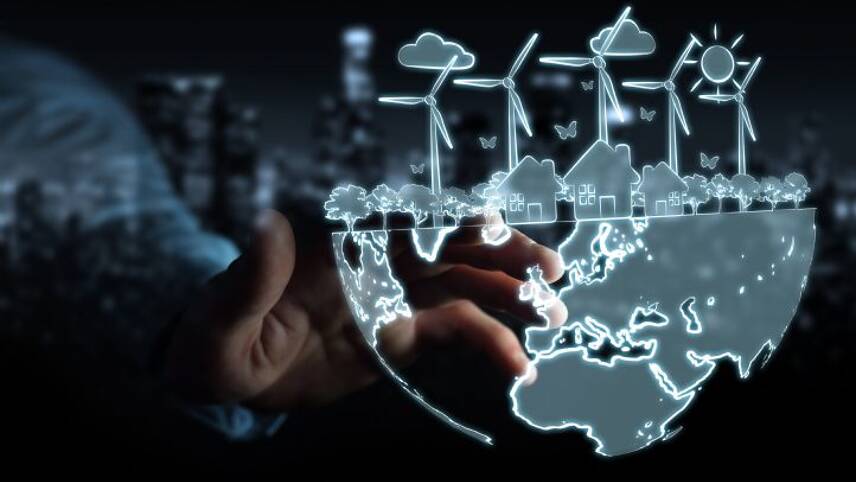Register for free and continue reading
Join our growing army of changemakers and get unlimited access to our premium content

However, while the pandemic is likely to remain a key business consideration, it’s important not to allow this current crisis to distract us from the climate change challenges we collectively face. This July was the hottest month ever recorded on earth, and this news has reaffirmed the need for businesses to act decisively and immediately to help slow and reverse climate change.
While the need to act will come as no surprise to business leaders, where key decision-makers often fall short is not understanding what’s required and how to implement the right changes that will have significant long-term benefit.
Companies need to set ambitious, yet achievable long-term sustainability goals. And they must also honestly scrutinise their existing technology choices and supply chains to ensure they’re making the best decisions for the business, customers, employees, and planet.
Setting ambitious long-term goals
Recent research from the IPCC shows that by 2040, the planet will have reached an average global temperature increase of 1.5 °C above pre-industrial levels. If this is not averted, it will lead to devastating and unprecedented extreme global weather events.
For businesses to play a part in preventing this, time must be invested into crafting an effective strategy, guided by ambitious long-term goals. Such as using fully renewable energy in their operations and targets to become carbon negative.
Unambitious, standalone policies like turning off electricity in unused spaces or introducing recycling bins show a failure to recognise the scale of the crisis. Distinguishing real action to tackle environmental issues versus imitated efforts, i.e. ‘greenwashing’, is a key pitfall businesses face as they respond to the mounting pressure to address climate change. And businesses have a vested interest in ensuring their approach seems credible.
Our own research found that consumers, particularly Gen Z (86%) and Gen Y (79%), have high eco-expectations and pay attention to the environmental and social credentials of brands they engage with and buy from.
Embracing heat-free technology
All businesses should look to reduce their energy consumption wherever possible. Electricity used by commercial entities is a significant contributor to global GHG emissions and, with an increasing number of appliances found in offices and business spaces, making inefficient tech choices will compound this negative impact.
Epson’s own recent partnership with National Geographic saw explorer Katey Walter Anthony highlight the devasting effect heat is having on our planet’s permafrost (the frozen ground beneath the polar regions of the earth).
An estimated 10% of global warming from this century will come from thawing permafrost that adds to rising global sea levels. This makes it more important than ever for businesses to switch to heat-free technology, to help put a halt to this worrying trend.
One solution is switching from a traditional laser printer to a heat-free alternative. Choosing a business inkjet printer will reduce the amount of energy consumed by up to 83%, and the high yield ink means users can benefit from an overall reduction in consumables of 96%.
A simple switch from laser printing to Epson’s Heat-free business inkjet technology could save European businesses enough energy annually to power 800,000 electric cars for a year, cut €152m in energy costs and lower CO2 emissions by 410m kilograms, an amount it would typically take 19m trees a year to absorb.
If companies shift to more sustainable technological alternatives through the different stages of their operations, then the environmental benefits will be similarly magnified.
Reassessing supply chain choices
When trying to become sustainable, organisations can concentrate solely on their own internal practices. However, for businesses to be seriously committed to tackling climate change, they must question the environmental commitments of suppliers and partners to check they align with their own environmental standards.
One approach is asking suppliers to undertake self-assessments focussed on environmental commitments. They can also ask suppliers to report the amount of water, electricity, gas, and other sources of CO2 emissions consumed for parts they sell to them, and work together to improve production processes and reduce consumption.
Influencing the activities of other businesses spreads awareness of effective practices and extends the beneficial impact for the company and the planet.
Putting sustainability at the heart of business
Sustainability should not be a mere check-box exercise or opportunity to make a business sound impressive. There needs to be a paradigm shift that sees all businesses consider environmental implications in every decision they make.
Setting appropriate goals, engaging constructively with suppliers, and switching to more sustainable technology all provide an effective framework to achieve this.
Now is the time for sustainability to return to the forefront of the business agenda, to help enrich the global community and the earth itself.
Boris Manev, head of sustainability and government affairs at Epson Europe



Please login or Register to leave a comment.